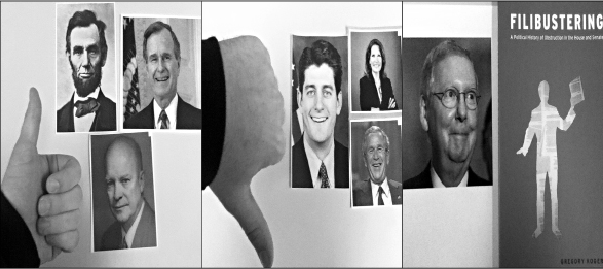Politics is as much a war of words as it is a forum for ideas, perhaps more so. Some of the biggest shifts in the history of American politics have come about as a result of changes in political language rather than in candidates or policies.
Candidates will come and go, but winning an election does not secure a victory for their ideas. A true and lasting victory is only achieved, as historians and political scientists will tell us, when one party gets its opposition to accept the change it has made and to use its language in referring to that change.
For example, Republicans raged against President Lyndon Johnson’s “Great Society,” a set of domestic policies largely responsible for establishing the social safety net we enjoy today. While that relentless criticism played well for them politically, as evidenced by their huge gains in the following midterm elections, Republicans were unable to repeal those policies when they were in power.
Now, Vice Presidential nominee Paul Ryan, who many consider to be the intellectual heavyweight of traditional conservative principles in Congress, attacked President Obama for cutting funding for Medicare, one of the defining programs of Johnson’s “Great Society.” In this statement at least, Ryan appears to defend what his party once so vehemently opposed. The Democrats won that round.
On the flip side, when President Obama was advocating for health care reform of the Affordable Care Act, opponents worked hard to brand it as “Obamacare,” seeking to link the president with the highly polarizing bill. Now seemingly everyone from the media to the President’s own reelection campaign have taken ownership of that name. The Republicans take that round.
There has been a different kind of battle raging within the Republican Party, however, and it has not been over the branding of a particular person or policy, but over the very nature of their core beliefs. I would argue that the word “conservative” has recently been hijacked by politicians who are anything but.
Limited, un-intrusive government; personal responsibility; private property. These are the things conservatives say they stand for. It used to mean measured, reasonable and practical solutions to problems and unrelenting faith in the ability of individuals to rise to challenges.
Then shouldn’t a conservative who embraces ideas like personal responsibility oppose the defunding of organizations like Planned Parenthood that empower women to take responsibility for their own health, and whose services do so much more to prevent abortions than administer them?
Shouldn’t a conservative who realizes same-sex marriage is already banned by Minnesota State Statute oppose an additional measure, to the State Constitution no less, just to make sure marriage can never be anything but between one man and one woman?
Shouldn’t a conservative who claims to oppose the intrusive nature of government then also oppose the melding of notoriously intrusive institutions such as organized religions into a government whose job is supposedly to stay out of the way?
Most troubling of all are attempts across the country by largely Republican-controlled legislatures to impose restrictions on the most sacred right any citizen of a democratic society has: the right to vote. Why are conservatives not opposing these intrusions?
The whole premise of conservatism was to keep government and other institutions from limiting freedoms. The Constitution, which conservatives still claim to stand for, has with but a single exception only ever been used to expand and protect freedom. So why do the defenders of liberty, the advocates of freedom and personal responsibility and the crusaders against government intrusion now advocate legislating intrusion?
It’s simple. The Republican Party is no longer made up of consistent conservatives, and the ones it has are being drowned out. Their core beliefs have been rebranded into something else, something far removed from limited government. We will have reasoned debate again in this country, but only when real conservatives reclaim ownership of their party and decide to oppose not just the encroachment by government on civil liberties from Democrats, but from those in their own party as well. The day that happens will be a brighter day in America, and a politically advantageous day in the Republican Party.
Until next time, Gusties: think more, believe less.
